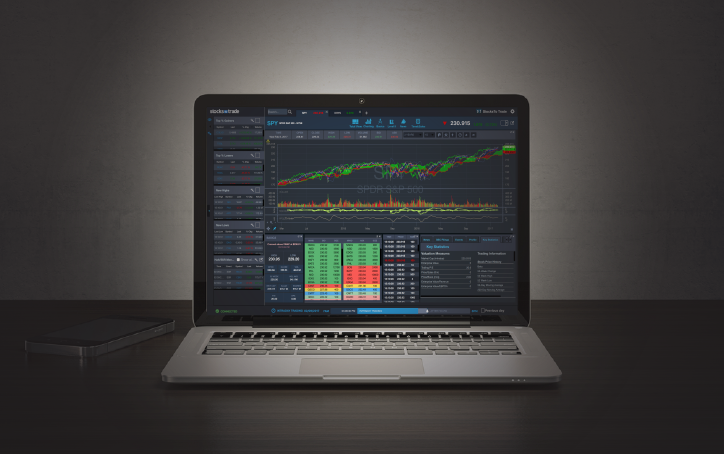Learning to Fish for Stocks with STT
That’s what we do at STT, with lead trainer Tim Bohen: We teach you how to fish for stocks. We don’t hand them to you.
Fishing is one of the most rewarding activities in the world; so, imagine standing down by the dock and having someone just hand you some fish. You never learn the art yourself, you never really reap the reward and they might not always be the fish you want. They certainly don’t taste as good as they do when you catch them yourself.
Download the key points of this post as PDF.
Fishing isn’t a crap shoot. And trading isn’t gambling. Before you head out in your boat, you need to be properly equipped; you need to know what kind of bait to use for what kind of fish; you need to know what kind of fish are around and what their patterns are (such as the Dead Cat Bounce). Basically, you need to study, do your homework … and keep doing. Or you won’t get any fish.
If you don’t understand the fish, they will continue to elude you.
STT isn’t in the business of giving you fish… or, er… recommending stocks. It’s lead trainer isn’t there to give hot stock tips or help you manage your money, either. He’s there to teach you, because success in trading is an educational journey—just like anything else in life that’s worth having or doing.
What Tim does is break down his own trades for you, talk about potential trades and lessons learned from past trades–so you can learn and do for yourself.
Homework over ‘Hot Picks,’ Originality over Imitation
You won’t make money if you don’t do your homework. It’s as simple as that.
This is not a slot machine; trading is pretty complicated. If you thought it just meant taking a risk on a hot stock tip you can get from just about anywhere, then you probably aren’t going to get very far.
There are fundamentals, technicals and loads of psychological things to consider for each trade. Not to mention your own psychology as a trader.
Like everything else, the more you put into it, the more you’ll get out. If you attempt to imitate someone else’s trades, this won’t work for long. You cannot mimic their every move.
“Every great trader has an outlook and set of methods that are distinctively his own,” says Dr. Brett Steenbarger, trading author and trading psychologist who has worked with some of the world’s biggest traders.
The lesson? Don’t follow people into stocks. Do your own work. Nothing else makes sense.
Learn from great traders, don’t imitate them.
“Many traders think the key to success comes in ‘hot picks’,” says STT lead trainer Tim Bohen. “I can tell you I have NEVER made a profit on and idea that was not originally my own. I have heard of traders getting lucky from time to time, but they were never able to duplicate the results.”
Instead, Tim’s goal—and what he teaches in STT Pro—is how to become a consistently profitable trader.
“Only by developing and refining your own process will you find consistent profits. This takes long, hard hours drinking coffee and staring at charts and reports, but in the end the work is worth it,” Tim says.
Successful traders are always seeking to boost their knowledge base on everything from markets and technical indicators to the psychology of the crowd. As the world changes around us, markets are dynamic and you have to keep up.
Especially for beginners, doing homework is critical, because in order to be successful you have to know the seasonal trends, be on top of data releases, and thoroughly understand trading patterns. Too often, however, we see new traders let a sense of urgency to start trading get in the way of doing adequate research. That lesson is an expensive one to learn, unfortunately. Not doing it can results in major losses and even worse, emotional setbacks.
(Also worth checking out, our 40 ‘Stock Trading Terms For Beginners‘ Article and Infographic!)
Many think that instead of doing homework, they’ll just buy and hold and hope for the best. If they hold onto it long enough, surely, it’s going to bounce back at least to what they bought it for. Maybe it will, maybe it won’t. Maybe they’ll lose even more. It’s definitely not a replacement for homework.
Absolutely every trader should be studying the technicals and fundamentals, reading, reading and reading some more to understand market trends and then staying on top of everything in real time. This means listening to conference calls, too.
There are almost no excuses for not doing homework in this age of information, when everything we need to know is available online, and when STT gives you all of the tools you need to stay on top of things, plus webinars, podcasts and daily lessons with Tim Bohen.
The bottom line is this: If you catch a trade for a man, he will eat for a day. If you teach him to trade, he’ll eat for life.
It’s up to each trader to decide whether he wants to eat for a day, or for life. STT is designed to help you with the latter.
If you’re still not convinced of the value of homework, then take it from trader extraordinaire Jesse Livermore:
“There is time to go long, time to go short and time to go fishing. A good signal jumps at you from the chart and grabs you by the face – you can’t miss it. Amateurs look for challenges, professionals look for easy trades. Losers get high from the action; the pros look for the best odds.”
